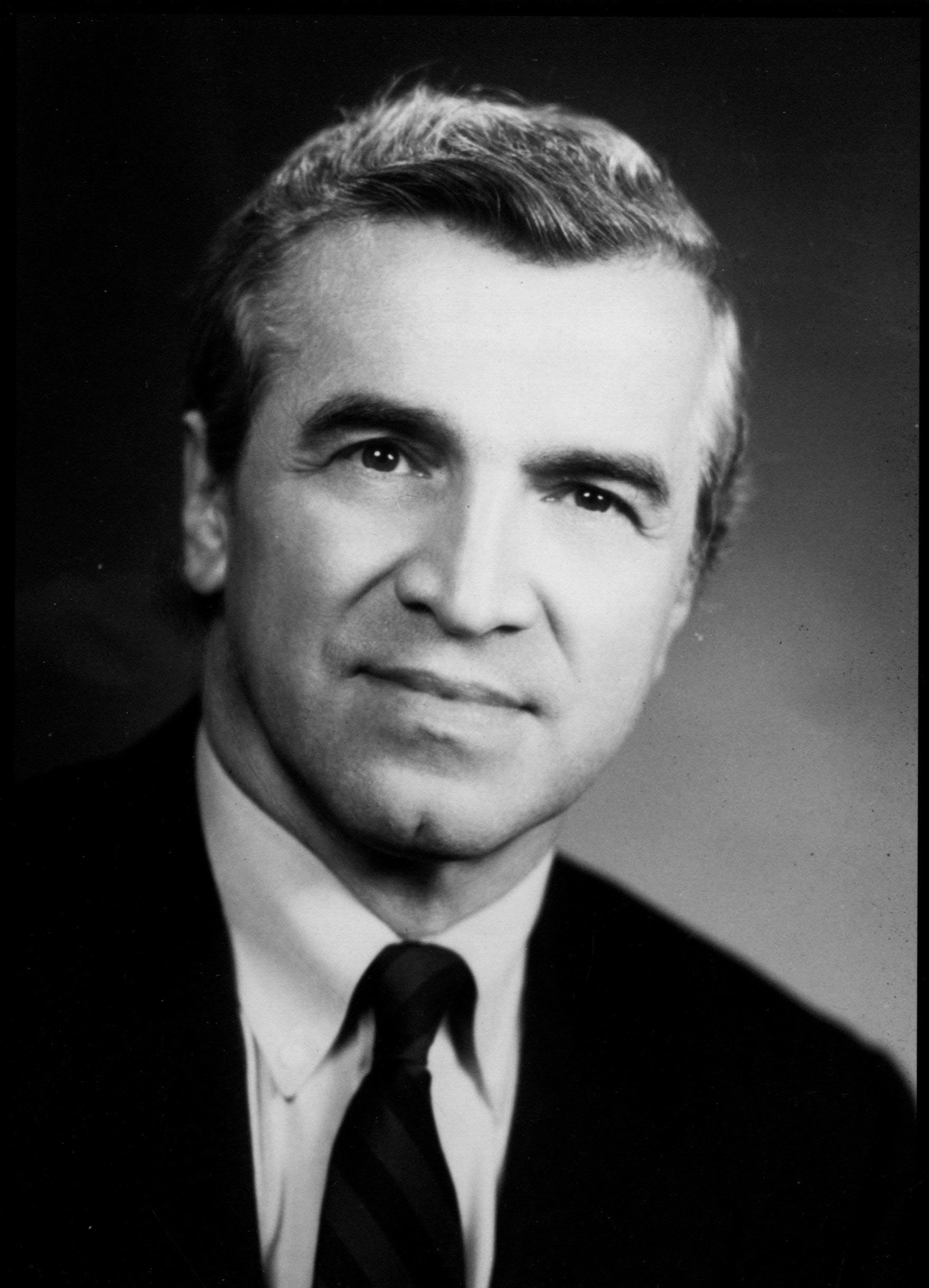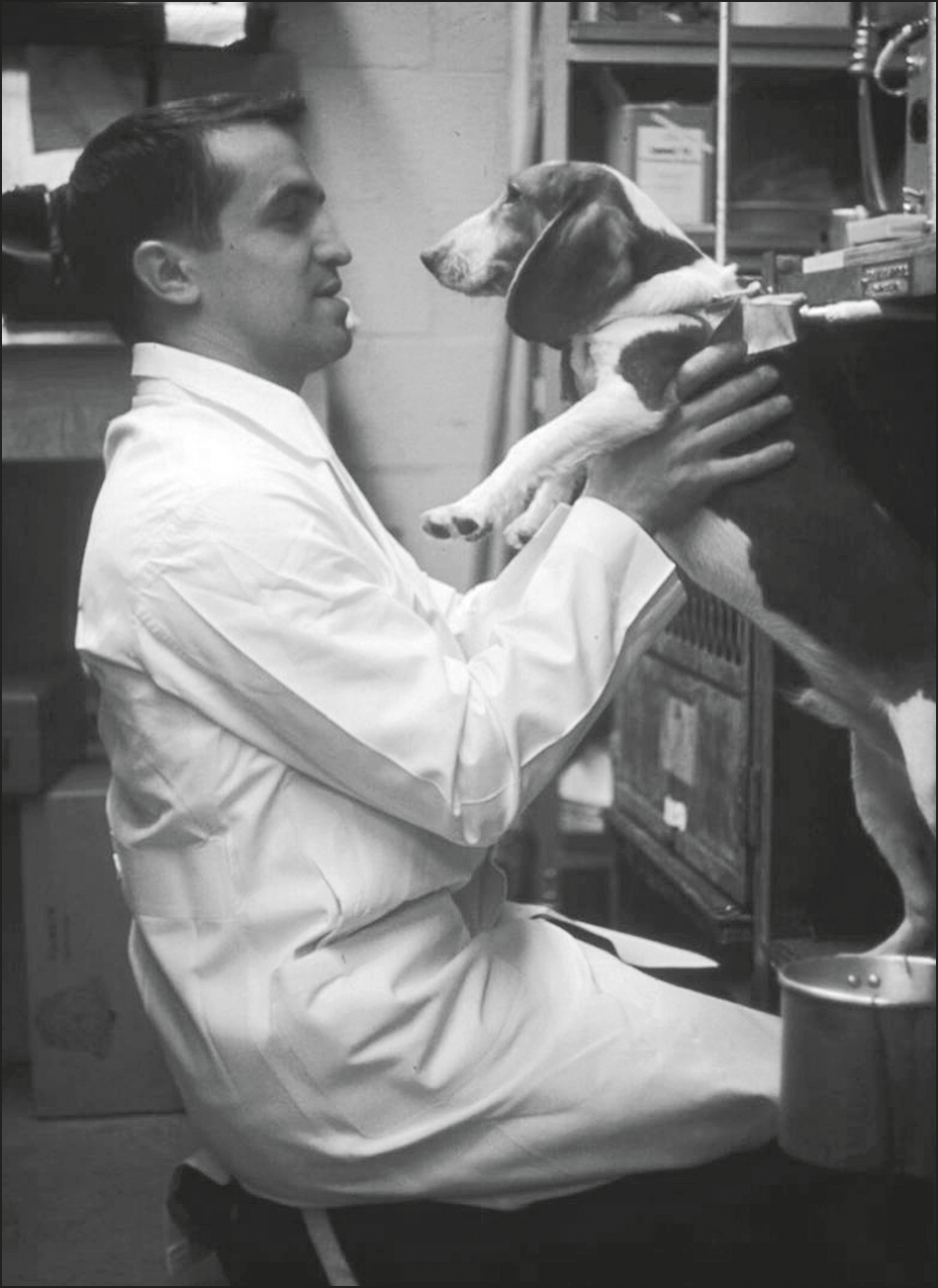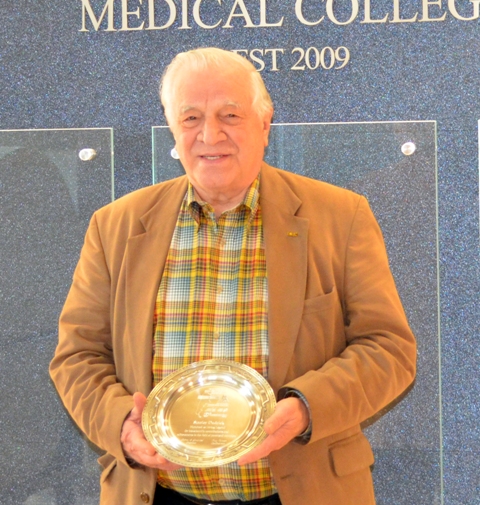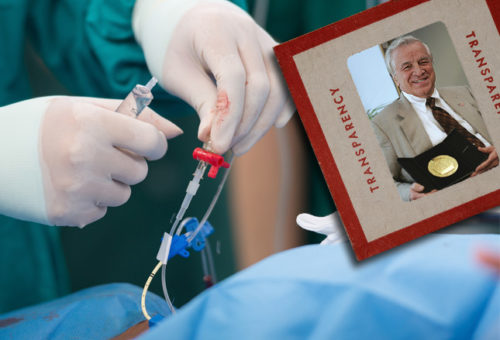Stanley Dudrick: Total Parenteral Nutrition
They guy who, unbeknownst to me, directed much of the many late nights I was on call for three years, comes up as number 42 of the fifty most influential doctors in history which we are going through.
Stanley Dudrick M.D. painstakingly invented and improved total parenteral nutrition (TPN) to the point it actually could be used in medicine and not cause more problems than it solved.
Stanley Dudrick MD, developer of total parenteral nutrition
What do we, today, owe to the people who have gone on before to make our lives, and those of our children, safer, healthier and more enjoyable to live? We’ve already thought about many in this series: treatment of burns, discovering circulation, discovering germs, saving blue babies.
Stanley Dudrick (1935- ) – #42
From Beagles to Babies—A Living Legend
Before Dr. Dudrick’s work there were many infants and children who we had to watch literally starve to death because something was preventing their bowels from absorbing nutrition.
“Catch-22” of Infant Nutrition
In probably the earliest known example of “catch-22,” nearly any insult to a child’s intestine often killed them; because, in order to heal, the bowel needs nutrition and it can’t bring in what it needs because it’s not working. Same goes for premature births.
Truly, just years before I went to medical school (in other words not that long ago), the best hope we had was to put the tiniest of tubes into a baby’s stomach and have a pump drip the weakest of formula continually at the lowest of rates just hoping against hope that we might be able to “sneak” some nutrition into the baby without doing more damage to the gut and preventing it from healing.
We did have IV sugar water and we knew exactly how many calories it took to live and grow which was was the rub. IVs can only be so strong with glucose calories before you “burn” the veins and damage the kidneys. And IVs can only go so fast before you flood the heart and damage the kidneys. And what about fats and proteins? They’re critical to healing, how do you get them in? Even the smallest “glob” of fat can clog an artery damage a kidney or cause a stroke; and, well, proteins. We all know how sticky, clumpy, bindy and cloggy proteins are—they’ll damage the kidneys and the liver!
Early Life and Education of Stanley Dudrick

Much of the late night hours in my residency was sitting with a calculator and using all the charts and calculations needed in order to design a specific “hyper-al” program for a child who couldn’t, for some reason, eat. And it was all down to the work of Dr. Dudrick.
He was born April 9th 1935 in the coal mining town of Nanticoke Pennsylvania to first generation Americans. Both his sets of grandparents emigrated from Poland and were basically indentured servants imported by the industry to mine coal. They mined for more than 40 years in addition to raising cattle and farming in order to be self-sufficient. Somehow they miraculously lived into their 80s.
His father and uncles all had to work in the mines once they were 13 until they were 21. His father and uncle studied on their own for a high-school equivalent education and both went to University of Penn. It was the depression, so his father with a family became an accountant while his uncle became a lawyer.
He was the first-born to his parents, with a large family and describes having “about 14 sets of parents” all extremely interested in his success. He graduated from high-school in 1953 while also becoming skilled in all self-sufficiency lessons of farming. He and his dad personally built a 4-room home with a hand-dug basement when he was 12.
When he was six, his “kind, salt-of-the-earth” mother contracted Rheumatic Fever in the days before penicillin and all of his relatives prepared him to be able to accept her death. He remembers the respect his family showed to the doctors telling him in reverent voices that he had to take a bath, put on his Sunday clothes and be a good boy because “the doctors are coming today.”
The doctors back then acted like the kind of men his family told them they were. The visits of the two general practitioners and the rheumatologist who made house calls made a lasting impression. “They would spend a minute or two with me and then sit administering to my mother’s needs and I was very impressed with their demeanor—great role models for me.”
He gave their concern and care the credit for his mother’s survival and it was their unmistakable compassion that settled his decision, by the age of seven, to become “one of them” and he never really wavered.
“Predestined” Medical Education

Dr. Dudrick was an intelligent boy and apparently superbly personable as well. A congressman visited his high-school in his senior year and was so impressed with him that he offered to appoint him to West Point Naval Academy. He did take the tests and “drills” and received acceptance.
However, as a high-school senior, he called and asked for an appointment to see the dean of the medical school at the University of Pennsylvania where he had hoped to be able to go. He wanted to merely ask if he could still go to medical school at Penn if he accepted the appointment to West Point.
Dr. John McK. Mitchell, a pediatrician, informally spoke with him then asked “what do you want from me today?” Dudrick asked his question and after a thoughtful moment was basically told yes but why would you want to spend eight years learning how to kill people first?
If you get yourself prepared for medical school, the dean told him, “If I’m still alive I’d like to see you apply here, and we’ll talk about it.”
Dudrick gave up his appointment, graduated Cum Laude in 1957 from Franklin and Marshall in Lancaster and made application to to medical school, including “Penn.” He was accepted to his second choice but hadn’t even received an interview at Penn.
He called the deans office and the secretary remembered him. She said that the dean had been so impressed with him at his previous visit that he wrote a note in his file: “If this young man ever applies to medical school here, take him.” They had discussed his application and were told that he didn’t even need an interview so they hadn’t offered him one—he had basically been accepted three years prior.
He graduated from Penn in 1961, was chief resident in Surgery at Penn until 1967, joined the faculty and worked up the ranks to full professor of surgery within five years.
Professional Career

In 1967, baby Kelleen arrived at the Children’s Hospital of Pennsylvania (CHOP) with a catastrophic congenital anomaly that prevented her from oral feeding and committed her to certain death. By then Dudrick had honed the techniques of parenteral nutrition on beagles enough to have also used it on six adults; which made him the three-and-a-half pound baby’s “only hope.”
He worked with the baby’s doctors through four-times-a-day setbacks, innovations and successes for over a month and a half to bring her weight up to almost 7 pounds. Then, as well as now, considered a complete miracle.
The number of lives of children that have been saved by his innovative technique is estimated at over 10 million, and the benefit to adults with a range of conditions is no less substantial.
His development of Total Parenteral Nutrition has been described as one of the four most significant accomplishments in the history of the development of modern surgery—along with asepsis and antisepsis, antibiotic therapy and anesthesia.
Additionally, it’s been acknowledged as one of the three most important advancements in surgery during the past century—along with open heart surgery and organ transplantation.
Later life:
Dr Dudrick is the recipient of more than 120 honors and awards and was recently named a “Living Legend” by the International Society of Small Bowel Transplantation.
Biographic Summary
Stanley Dudrick is a consummate student and educator who had become a “living legend.”
Born: April 9th 1935, in Nanticoke Pennsylvania
Died: Living
Education: Franklin and Marshall, University of Pennsylvania School of Medicine and hospital
Known for: Father of total parenteral nutrition
25 Posts in Top 50 Doctors (top50) Series
- 27 - Charles D. Kelman - Cataracts – 9 Mar 2023
- 28 - Cicely D. Williams, Kwashiorkor, Breastfeeding, Whistleblower – 21 Jun 2022
- 29 - Dame Cicely Saunders, Hospice – 23 Apr 2018
- 30 - David L. Sackett, Evidence-based Medicine – 2 Apr 2018
- 31 - E. Donnall Thomas & Joseph Murray, Bone Marrow Transplants – 23 Feb 2018
- 32 - Elizabeth Blackwell, women in medicine – 29 Jan 2018
- 33 - Elisabeth Kübler-Ross, stages of grief – 5 Jan 2018
- 34 - Watson & Crick, DNA – 2 Dec 2017
- 35 - Mahmut Gazi Yaşargil, Micro-Surgery – 24 Oct 2017
- 36 - George Papanicolaou, Cytopathology, Cancer – 29 Sep 2017
- 37 - Dr. James Parkinson, Parkinson's Disease – 1 Sep 2017
- 38 - Dr. John Snow, cholera – 20 Aug 2017
- 39 - Dr. Joseph Kirsner, GI Joe – 27 Jul 2017
- 40 - Lawrence (Larry) Einhorn, chemotherapy – 16 Jun 2017
- 41 - Robert Koch, modern bacteriology – 21 Mar 2017
- 42 - Stanley Dudrick, TPN – 28 Feb 2017
- 43 - Stanley Prusiner, neurodegenerative diseases – 25 Jan 2017
- 44 - Victor McKusick, medical genetics – 3 Jan 2017
- 45 - Virginia Apgar, anesthesiology & newborn care – 12 Nov 2016
- 46 - William Harvey, circulation – 12 Oct 2016
- 47 - Zora Janžekovič, burns – 26 Sep 2016
- 48 - Helen Taussig, blue babies – 3 Sep 2016
- 49 - Henry Gray, anatomy – 3 Jul 2016
- 50 - Nikolay Pirogov, field surgery – 11 Jun 2016
- Top 50 Doctors: Intro/Index – 10 Jun 2016
Advertisement by Google
(sorry, only few pages have ads)

